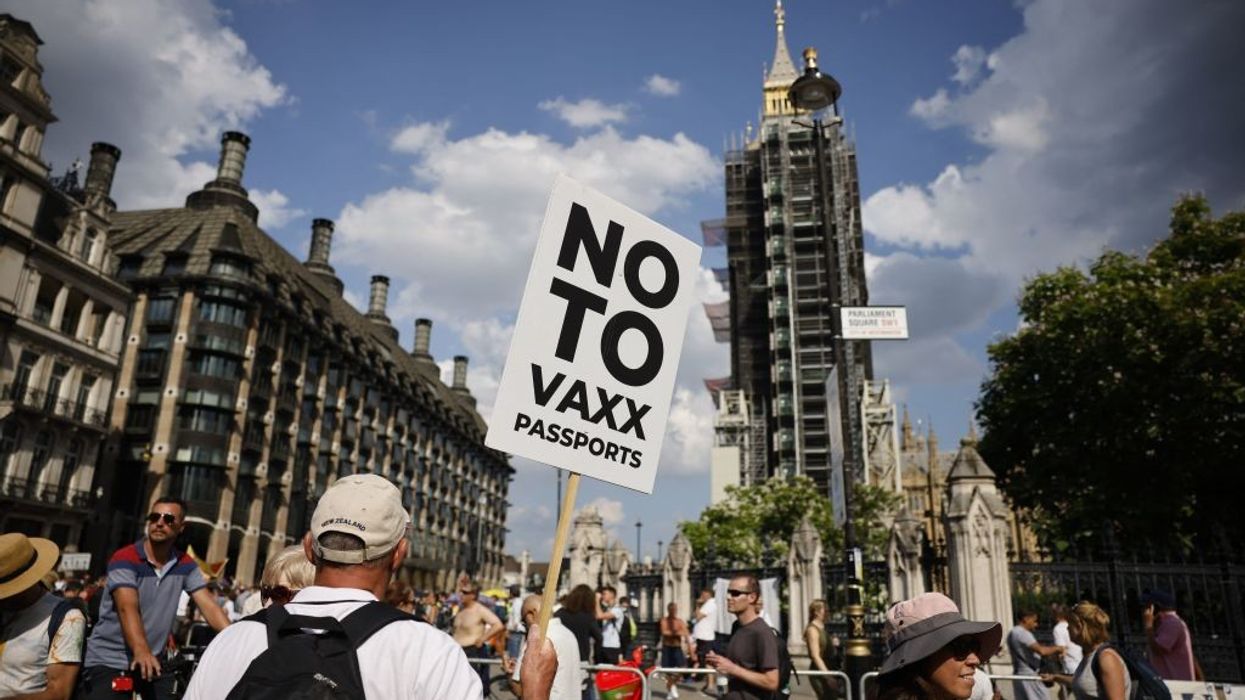THE UK government is planning to implement the vaccine passports within a month. However, new research of more than 16,000 people has found that such plans will make hesitant people even more reluctant to get the Covid vaccine, The Guardian reported.
The research to be published in the Lancet journal EClinicalMedicine this month has suggested that vaccine passports it could be counterproductive among the most hard-to-reach groups.
The survey was carried out in April when most people were either unvaccinated or had received only one dose of a vaccine.
According to the study, groups that are less likely to get vaccinated – including the young, non-white ethnicities and non-English speakers – also view vaccine passports less positively.
While these groups comprise a relatively small proportion of the UK population, they cluster geographically and tend to be less inclined to get vaccinated in the first place, The Guardian report added.
“This creates a risk of creating a divided society wherein the majority are relatively secure but there remain pockets of lower vaccination where outbreaks can still occur,” the authors wrote in the paper, which is currently in preprint form.
The analysis involved 16,527 people, of whom 14,543 had not yet had both vaccine doses. In this group, the vast majority (87.8 per cent) indicated their decision on being jabbed would not be affected by the introduction of passports.
However, of the remaining 12.2 per cent, about two-thirds suggested they would be less likely to get vaccinated if passports were introduced, while the rest said they would be more inclined, the newspaper report added.
Prime minister Johnson announced in July that the government would make it compulsory for nightclubs and other crowded indoor venues to ensure customers have been fully vaccinated before allowing them entry.
No details regarding the plan have yet been published, but the prime minister’s official spokesperson recently said that there was no change in the policy, The Guardian report added.
The lead author of the study, Dr Alex de Figueiredo from the London School of Hygiene and Tropical Medicine, said these percentages become significant when scaled up to the whole population.
The newspaper report suggested that the latest findings will strengthen the hand of Tory backbenchers determined to see off the vaccine passports plan if it comes to a vote in the House of Commons.
Labour has also expressed concerns, suggesting a system that included Covid testing as an alternative to vaccination would be a better approach since fully jabbed individuals can still catch and pass on the virus.
“Not only would vaccine passports create exclusion, but that exclusion would also be structured by existing inequalities. You only need to look at the data on who isn’t yet vaccinated to understand this – the young, the poor, ethnic minorities stand to be excluded," Prof John Drury, a participant in the Sage subcommittee advising on behavioural science, told The Guardian.
According to scientists, another issue with vaccine passports, especially in light of the highly infectious Delta variant of coronavirus, is their weak scientific basis.
Someone who is double-jabbed is still half as likely to be infected as someone unvaccinated, notes Paul Hunter, professor of medicine at the University of East Anglia.
Also, proposals for vaccine passports have been met with scepticism from Britain’s nightclub sector, which warns it could harm their recovery.
Live music industry representatives expressed a preference for the current entry requirement for most venues and festivals – which allows the choice of providing proof of double-vaccination or recovery from Covid or a negative test.
Global models
Vaccine passport schemes introduced abroad have evolved in different directions and triggered varied reactions, The Guardian report added. In France, tens of thousands protested over a health pass allowing people to access restaurants, bars, planes and trains.
Denmark’s “coronapas” system has been in operation since April but is being dropped from 10 September as authorities believe the virus is no longer a “critical threat” to society.
Israel has had a “green pass” for much of the year. It released an app in February showing whether people have been fully vaccinated against Covid or have presumed immunity after contracting the disease.
A QR code system introduced last year in China categorised people into different colours, with green allowing them to move around freely if QR codes are requested in public spaces for entry.





